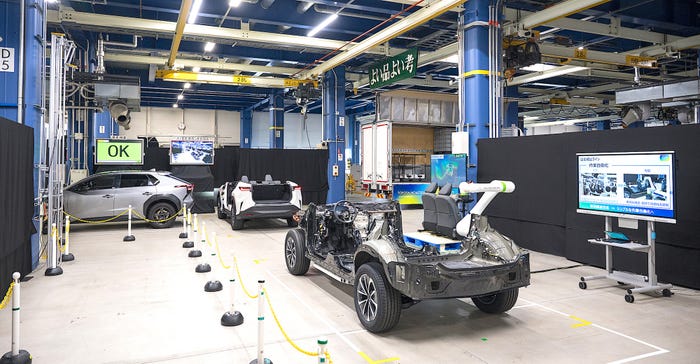Toyota Chair: Battery-Electric Vehicles Will Never Top 30% Global Market Share
Toyota Motor Co. Chair Akio Toyoda stated that the remainder will be HEVs, FCEVs, and ICE vehicles: ‘The market will decide.’

In a speech to corporate managers and executives this week, Toyota Motor Co. Chairman Akio Toyoda said that he believes the future of automotive power trains will be not all battery-electric but a mix of battery-electric vehicles (BEVs) hydrogen fuel-cell electric vehicles (FCEVs) and internal combustion engine (ICE) powered vehicles. The BEV portion will only have a 30% share of that market, he said.
In remarks shared by Toyota (and translated here by Google Translate), Toyoda noted that “how to climb the mountain of carbon neutrality is related to each country's energy situation. … one billion people around the world live in areas without electricity. In the case of Toyota, we supply vehicles to these regions, so a single BEV option cannot provide transportation for everyone.”
Toyota believes that freedom of movement should never be taken away from people in any region, country, or income group, he said. For that reason, Toyota is pursuing a variety of approaches.
That 30% BEV share comment may sound surprising, given how in 2023 the company seemed to rush to embrace the BEV market:
In June, 2023, Toyota first announced its plans to join the BEV market and its establishment of a subgroup to develop next-generation BEVs.
In September, Battery electric vehicle factory president Takero Kato detailed Toyota's plans to introduce a BEV with a range of 625 miles, to develop a lower-cost cobalt-free Lithium Iron Phosphate (LFP) battery, a higher-performance bipolar lithium-ion battery, and, by 2028, a solid-state battery (SSB).
In October, Toyota announced a partnership with Idemitsu Kosan for SSB development and to study eventual mass production.

Toyota showcased its EV manufacturing plans in its Motomachi plant. Credit: Toyota Motor Co.
‘The enemy is CO2’
Toyoda isn’t running away from that, however. He took exception to what he said was misrepresentation by the media as to the company’s progress in vehicle electrification. He pointed to the company’s successful history of developing HEVs as evidence.
“What Toyota has that other companies don't have is HEVs,” he said. “Thanks to the introduction of HEVs in Japan 20 to 30 years ago, Japan is the only developed country to have reduced CO2 emissions by 23%.”
The media doesn’t recognize this progress, he claimed: “All I hear is, ‘Toyota is behind in BEVs.’”
Toyoda made it clear that the focus needs to remain on overall carbon reduction, not just on how quickly a company embraces a platform such as BEV or FCEV:
“The important thing is not to convert to BEV or FCEV. The enemy is CO2. So, let’s all think about reducing CO2 right away.”
About the Author(s)
You May Also Like





